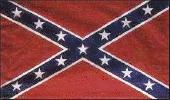Take the country of Israel for example: it has been
trying for over 50 years to forcibly tie together two nations -
Zion and Palestine - and it simply does not work. The country of
Iraq, given the opportunity with the abrupt removal of its government,
is now showing signs of splitting into at least three different
nations, all based around the ethnicity of the peoples formerly
bound together there. Other good examples of countries are Czechoslovakia
and the Soviet Union, both of whom are now largely dissolved back
into the various nations that made them up; and Great Britain (not
to be confused with the nation of England) which had already lost
most of Ireland long ago, is in the process of losing the Northern
Six Counties, as well as seeing rising separatist movements in Scotland
and Wales (All three of which are nations, and as such are bound
by instinct to seek the establishment of their own countries.).
The United States is also a country, rather than a nation, and only
two generations had barely passed since its founding when its government
found it expedient to pin the nations that made it up together with
bayonets. It has yet to stand the test of realistic historical time,
and if it were actually a nation rather than a country, we wouldn't
be having this conversation now.
A nation, on the other hand, may or may not exist
as a country (In extreme cases a nation may even exist in various
lands in scattered exile, like the proverbial 'wandering Jew'.),
although its nature is such that it invariably strives to do so.
The proper definition of a nation, from the Holy Bible to the Oxford
dictionary, is not a political philosophy or a land mass, but a
people, bound together with a common heritage, religion, language
and, most importantly, ancestry: in short, bound in blood, which
time has proven to be a much stronger and more enduring chain than
politics, documents, or even seas and mountain ranges.




